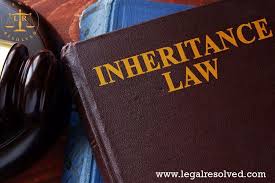
Week 14: General Principles of Inheritance
““Learn the laws of inheritance and teachLearn the laws of inheritance and teach them to the people for they are one-half ofthem to the people for they are one-half of useful knowledge." (Sunnan Ibn Majjah)useful knowledge." (Sunnan Ibn Majjah)
- Payment of funeral expenses.
- Payment of his/ her debt.
- Execution his/ her will
- Distribution of remaining estate amongsthe heirs according to Sharia.
"It is not for a believer, man or woman,"It is not for a believer, man or woman, when Allah and His Messenger havewhen Allah and His Messenger have decreed a matter that they should havedecreed a matter that they should have any opinion in their decision. And whoeverany opinion in their decision. And whoever disobeys Allah and His Messenger hasdisobeys Allah and His Messenger has indeed strayed into a plain error." [Quranindeed strayed into a plain error." [Quran 33:36]33:36]
Inheritance in Islam is like rest of the Islamic personal law i.e. combination of pre-Islamic ancient Arabian custom and the rules introduced by the Prophet. • Prophet - “the knowledge of prescribed shares in Islamic system of inheritance constitutes one half of the sum total of human knowledge” • Pre Islamic customs are the combination of rules laid down in Quran and customs and usages prevailing among Arab tribes near Mecca and Madina at the time of Prophet.
REFORMS MADE BY PROPHET
• Prophet did not abrogate the pre Islamic customs but only amended it according to the need of the time.
• The main reforms introduced were that instead of agnate male relations, Prophet substituted blood relation of any degree whatsoever together with relation by marriage.
• He created a list of sharers including, females, cognates and other female heirs which are termed as
4. DIFFERENCE BETWEEN PRE ISLAMIC AND ISLAMIC LAW PRE ISLAMIC
• The nearest male agnate succeeded to the entire estate
• Females and cognates were excluded
• Descendants were preferred to the ascendants
• When agnates were equally distant; the estate was divided per capita NEW REFORMS
• The following were entitled to inherit:
1. Husband and wife
2. Females and cognates
3. Parents and ascendants were given right to inherit even when there are male descendants 4. The share of female is half of corresponding male’s share



